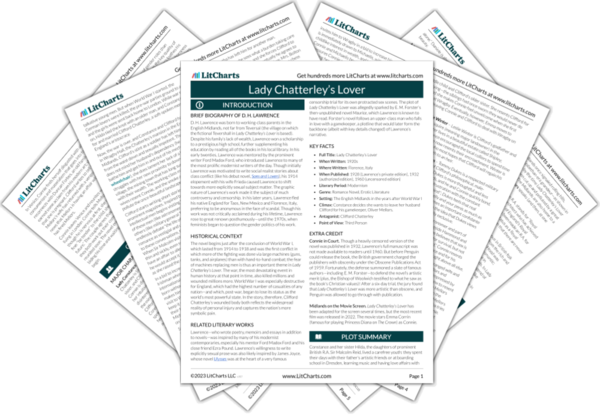Mellors’s use of dialect joins two of the novel’s most important themes. On the one hand, the Midlands dialect—as least as Mellors uses it—is shorter and less intricate, getting to the points that Clifford often circles. On the other hand, the Midlands dialect, spoken primarily by the working-class residents of the region, signals Mellors’s disdain of the upper classes; though he has access to many of these high-status mannerisms, Mellors insists on sprinkling this dialect into conversation, as if proving how arbitrary these class markers really are.
